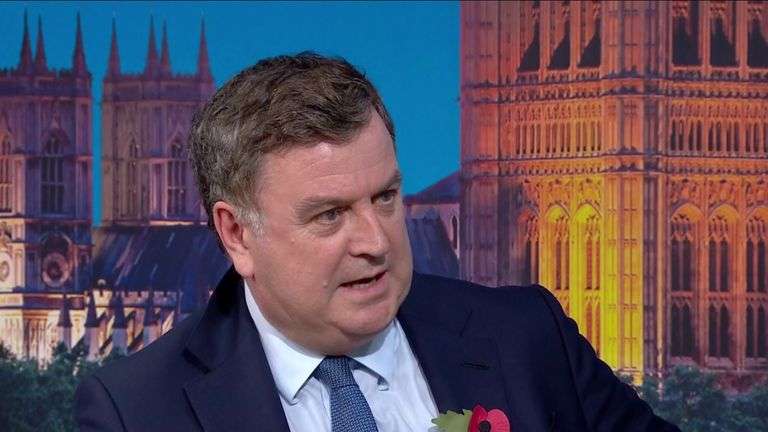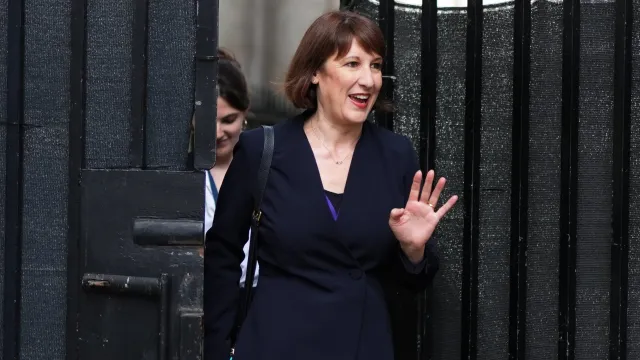Labour is ramping up its efforts to attract wealthy investors by amending the finance bill to ease changes to the non-dom tax regime.
Speaking at the World Economic Forum in Davos, Switzerland, Chancellor Rachel Reeves emphasized Labour’s commitment to making the UK a prime destination for investment.
“We have been listening to the concerns that have been raised by the non-dom community,” Reeves said, signaling a softer stance on the controversial policy shift.
The planned amendment involves extending the three-year transitional arrangement for non-doms, allowing them more flexibility to adapt to the phasing out of their tax status. Originally set for two years, the transitional facility will now last three years, enabling non-doms to repatriate overseas income at reduced tax rates of 12-15%.
The policy tweak is part of a broader strategy by Labour to signal its pro-business credentials. In Davos, Reeves and Business Secretary Jonathan Reynolds have been actively courting global business leaders. “We have a great pitch to make,” Reynolds said. “We are talking to people who want to invest in the UK, seeing our pitch to political stability and commitment to openness.”
Labour’s economic agenda this week has included pushing for the removal of Marcus Bokkerink, the chair of the competition regulator, promising to review the visa regime for high-skilled migrants, and announcing measures to limit legal challenges to major infrastructure projects.
The current non-dom system, which allows wealthy residents in the UK to avoid paying tax on overseas earnings for up to 15 years, has faced criticism for being a relic of Britain’s colonial past. The Conservatives, under former Chancellor Jeremy Hunt, initiated reforms to the regime last year, but Reeves’s Labour promises to go further.
Some non-doms had expressed dissatisfaction with the initial transitional arrangement, arguing that it excluded proceeds from certain types of investments. In response, the Treasury confirmed plans to tweak the rules to address these concerns.
“There is a tweak to the finance bill,” Reynolds told journalists. “When you’re changing a tax regime, people will want to know, and there’ll be some uncertainty there, so we’ve got to get that message out.”
Critics, including Shadow Chancellor Mel Stride, have accused Labour of undermining the UK’s economic competitiveness. “Labour simply does not understand business and the economy, and working people are paying the price,” Stride said.

However, Treasury sources denied that the changes were prompted by reports of wealthy individuals leaving the UK. Instead, they described the amendments as part of ongoing engagement with stakeholders to ensure the reforms function as intended.
Balancing Growth and Policy
Labour’s push for economic growth has led to questions about its commitment to other priorities, such as achieving net-zero emissions. Reeves has emphasized that growth must take precedence in the short term.
The party’s delegation in Davos, which included Trade Minister Sarah Jones, hosted discussions with more than 20 business leaders from companies like HSBC, Barclays, and Lloyds Banking Group.
“There’s a commitment to do a lot more in the coming months to keep the momentum going and try to change the narrative,” one attendee said of Labour’s efforts. “It was a good delegation, and they are saying the right thing.”
Others praised the tone of the meetings as “friendly, warm, and respectful,” with one participant noting, “Questions were very tame. There was a sense of ‘Thanks for being here and putting on a good show for the UK.’”
Labour’s adjustments to the non-dom regime reflect a delicate balancing act: appealing to wealthy investors while addressing long-standing criticisms of tax inequality. Reeves’s efforts in Davos suggest a clear intention to reframe Labour as a pro-growth, business-friendly party ahead of the next general election.
While the Treasury maintains that the reforms will not impact the £33.8 billion in projected tax revenue over five years, the success of these measures will depend on their ability to retain and attract investment.
As Labour works to rebuild its economic reputation, the stakes remain high for a party seeking to convince both voters and investors that it can deliver growth without compromising fairness.
READ ALSO: Moses OK Discloses Amount He Receives From GHAMRO





















